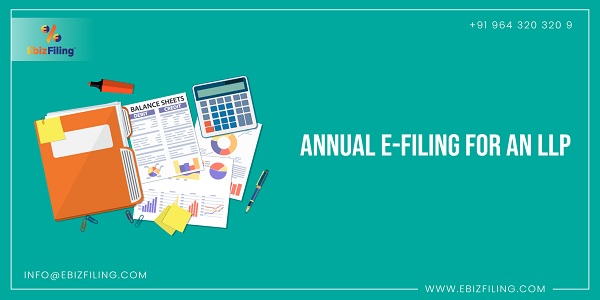Introduction: An Overview of LLP Annual Filing & Compliance
Limited Liability Partnerships (LLPs), although shouldering fewer compliance obligations than Private Limited Companies, are bound to regularly file returns to safeguard their compliance and avert any potential penalties. This comprehensive guide seeks to arm you with essential information on LLP Annual Filing, LLP Annual Compliance, the intricacies of the LLP E-filing process, and vital information on Limited Liability Partnerships.
Page Contents
Unraveling Limited Liability Partnership (LLP)
A Limited Liability Partnership, acknowledged by the Ministry of Corporate Affairs (MCA), is a legal entity fusing the advantages of a company’s limited liability with the operational flexibility of a traditional partnership. An LLP boasts the ability to continue existing irrespective of changes in its partner structure. Moreover, it has the authority to enter contracts and own property in its name, thereby providing a flexible yet secure business environment for partners.
What to Bear in Mind for LLP Annual Compliance
Annual compliance is a non-negotiable obligation for all registered LLPs, irrespective of whether they have business activities or not. The Registrar of Companies (ROC) insists on annual returns filing, necessitating the submission of LLP Forms 11 and 8. The due dates for these forms are 30th May and 30th October respectively. Maintaining compliance with these rules, and filing necessary documentation in a timely manner, is paramount to avoid any repercussions from the ROC and Income Tax authorities.

LLP Annual Compliance Forms: The Building Blocks
- Form 8: This is essentially a statement of account that is to be filed with the ROC. It provides a snapshot of the financial health of the LLP.
- Form 11: As an annual return, this form provides a comprehensive overview of the LLP’s operations during the financial year. This is also filed with the ROC.
- Form ITR 5: Pertaining to the tax return, this form encapsulates the details related to the LLP’s income and is filed with the Income Tax Department.
- Tax audit reports (if applicable): These are filed with the IT Department in the event of a tax audit.
Demystifying the LLP Annual E-Filing Process
Completing the LLP eForm through the MCA Portal involves a step-by-step process:
- Access the MCA Portal and navigate to the specific LLP page.
- Select the category most suitable to your needs in order to retrieve the appropriate eForm.
- Download the eForm and its accompanying instruction kit. The kit provides a detailed guide to completing the eForm.
- Fill out the downloaded eForm, ensuring to provide information in all mandatory fields.
- Attach all necessary documents as directed within the eForm.
- Connect to the internet and use the Prefill button (if applicable) to autofill specific fields in the eForm.
- Digitally sign the document. This could be done by the applicant themselves or by a representative on their behalf.
- Use the Check Form button within the eForm to verify the details provided, ensuring the inclusion of necessary attachments, and validate the digital signature.
- Upload the completed eForm for pre-scrutiny. The system will then evaluate the document for any possible errors or omissions.
- Pay the determined charge, including any late payment fees, using a convenient method, such as credit card, NEFT, internet banking, or at the bank counter through challan.
The Significance of Annual Filing for LLPs
Annual filing for LLPs, involving the submission of annual returns, financial statements, income tax returns, and compliance certifications, is a regulatory requirement. It ensures transparency, accountability, and compliance, which are vital for maintaining accurate records and fulfilling legal obligations.
Conclusion: The LLP Act and You
According to the Limited Liability Partnership Act, an LLP isn’t obligated to audit its books of account until either its annual turnover or contribution surpasses Rs. 25 Lakhs or Rs. 40 Lakhs. However, the LLP accounts must include a declaration from the partners acknowledging their responsibilities regarding compliance with standard accounting and financial statement preparation procedures. This ultimately reinforces the critical importance of maintaining a meticulous approach to LLP compliance.





